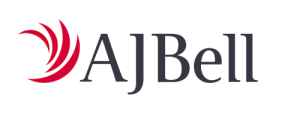During February, our net asset value return was 4.9% and shareholder returns were 0.8%, in comparison to the FTSE All-World Index return of 4.9%.
Equity markets continued to perform well in February, with several equity indices, including the S&P 500 and Nikkei, rising to record highs. Indeed, Japanese equities reached their highest level since 1989.
US economic data remained resilient – non-farm payrolls and ISM manufacturing both surpassed expectations – but inflation surprised to the upside (3.1% versus 2.9%), leading investors to push out the expected timing of future interest-rate cuts.
Across sectors, technology was the standout performer in February. While the market rally began to broaden out to other sectors – only telecommunications posted negative returns this month – excitement around the potential for artificial intelligence (AI), in conjunction with strong fourth-quarter earnings delivery, continued to support the Magnificent 7 (Microsoft, Apple, Alphabet, Amazon, NVIDIA, Meta and Tesla). However, fortunes within the group have diverged, with those most geared towards the AI theme, including NVIDIA (61.6%) and Meta (40.2%), enjoying the strongest performance for the year thus far. Those most exposed to China, namely Apple (-4.9%) and Tesla (-17.8%), have suffered over the year to date due to burgeoning local competition and weak domestic demand resulting from China’s sluggish economic recovery and ongoing property crisis. Chinese iPhone sales, which comprise c.15% of Apple’s total revenues, reportedly declined c.25% year-on-year in the first six weeks of 2024, driven by intensifying competition from a resurgent Huawei. This has coincided with mounting investor concern that the company is failing to keep up with peers in the development of AI capabilities. The Trust’s growth-orientated strategies, notably JP Morgan US Growth and CT Global Focus, have been beneficiaries of diverging performance across the Magnificent 7, with both strategies delivering strong outperformance due to limited exposure to Apple and Tesla.
Across regions, Chinese shares (+9.1%) experienced a sharp recovery in February as the authorities took several steps to bolster the stock market, which has fallen by over c.30% from its peak in 2021. Replacement of China’s top securities regulator, restrictions on sales and short selling, record share buybacks, and mounting purchases of exchange traded funds by China’s so-called ‘national’ team of major state-backed financial services operators have been instrumental in stabilising share prices. US shares (+6.0%) also outperformed the global benchmark in February due to a high weighting to technology, while Japan (3.4%), Europe (2.0%) and the UK (0.9%) underperformed. UK shares remain under pressure amid record outflows and lacklustre economic growth. UK GDP contracted 0.3% in the fourth quarter of 2023, as the UK entered technical recession late last year.
Vertiv Holdings (20.8%), which is held at an overweight relative to the benchmark, was a key contributor to relative returns in February. As a leading supplier of cooling equipment and technology for datacentres (many of which are ill-equipped to support the computing required for AI), surging demand for AI applications has resulted in the stock gaining 400% in the past year. In contrast, the Trust’s overweight position in Comcast (-7.3%) was the most significant detractor from relative returns this month after reporting a 34,000 broadband subscriber loss for the latest quarter.
We ended the month at a discount of 9.9%, widening from a discount of 6.3% at the end of January.










